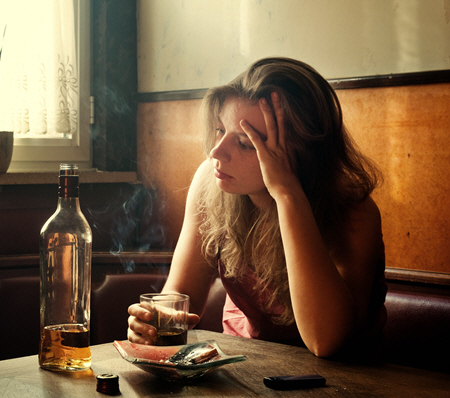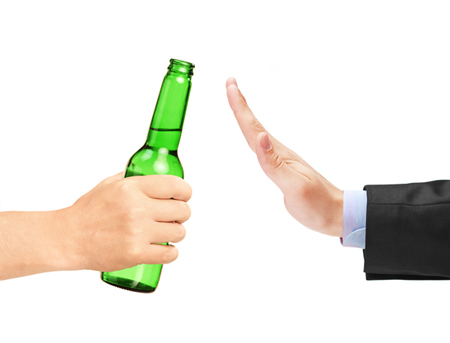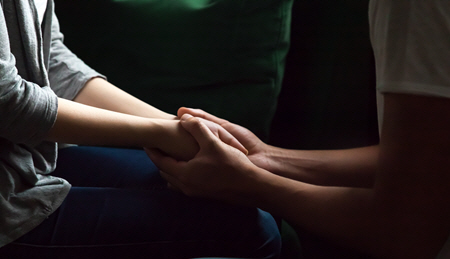 You have always liked to drink.
You have always liked to drink.
It was fun in school to go out with your friends and grab a six-pack or a pint of liquor. Alcohol helped you relax, have fun with your friends, and be more fun to be around.
As you got a bit older, you noticed that others would have one to three drinks and then call it a night. But not you.
“What’s wrong with them?”
You would buy a round of shots for everyone to keep the party going and get annoyed if they refused. If you couldn’t find anyone to keep drinking with, you would continue alone.
“Don’t they want to get drunk?”
Over time, you noticed you had to drink more to get the same effect. You start drinking at lunch and as soon as you get home from work. You might ask yourself, “Is this a problem?” And the quick answer would be “no.”
But friends and family start saying you become a different person when you’ve been drinking, and they don’t like being around you. They have caught you in a couple of lies and are disappointed in your behavior.
Feel ashamed of your drinking and hide it…
… so, others won’t notice and hassle you about it. Maybe you have a few bottles stashed around the house in an attempt to hide how much you are drinking.
Hangovers are frequent – and you’re feeling more tired, irritable, and maybe depressed. You wonder if others can smell alcohol on you.
You usually get to work and can “fake it and make it” through the day. However, one job six months ago fired you for being drunk on the job.
Relationships with friends and significant others are at breaking points. They don’t like being around you when you’re drunk – they feel neglected and disconnected from you. They tell you you’re not the person they used to know – maybe because of hurtful comments you made or that you have become more irresponsible and unreliable.
Your self-esteem is at a “low point” as your friends, family, your pride, maybe your work ethic are slowly disappearing. You find yourself either isolating at home or hanging out with strangers at bars since drinking around friends and family is no longer fun.
 Whether it is alcohol or drugs…
Whether it is alcohol or drugs…
It has become a vicious and repeating cycle. You are using too much – feeling exhausted and irritable.
Relationships have been damaged, your physical health is poor, and you are feeling disconnected and alone. It feels like using or drinking is the only way to feel relief.
And maybe now financial problems have occurred due to alcohol or drug-induced spending sprees; or you have legal troubles due to a possession charge, DWI, or a “drunk in public” charge.
You have prioritized alcohol and/or drugs over everything else, and the damage is continuing.
“Is there anybody in there? | Just nod if you can hear me |Is there anyone home? | Come on, now | I hear you’re feeling down. |
Well, I can ease your pain | Get you on your feet again | Relax.”
(“Comfortably Numb,” Pink Floyd)
What type of drinker are you?
Maybe you are a young adult alcoholic…
Do you tend to binge drink on weekends with friends? You’re in your 20s and don’t typically drink during the week, so you feel like it’s okay to binge on the weekend, especially if you’re up and ready to go on Monday morning. You also like to vape the occasional recreational drug.
Maybe you are a functional alcoholic…
Do you do a pretty good job of maintaining a job and a relationship? Never had any legal problems related to alcohol? Maybe others see you as having your “house in order” and may even look up to you – but you are still struggling with addiction. Maybe you’ve experienced a bit of depression over time? Statistically, “functional alcoholics” are middle-aged, higher levels of education and income, and are 60% men.
Maybe you are a chronic relapser…
Have you recognized that you suffer from alcoholism and received treatment in the past, but sobriety was only a short-term benefit? Maybe you did a 30-day residential program but drank again shortly thereafter. You know that alcohol is ruining your life. But the desire is so strong, and it keeps creeping back. Commonly, alcoholism can be found in your family history.
It isn’t easy to stay clean if you are trying to do it on your own.
Is it impossible?
No. But it is typically a more difficult and less successful path for many who do try.
Why is this? Most people with addictions tend to surround themselves with others who also like to party. This makes the temptation to relapse stronger. If they avoid these people, the person is isolating themself from others and can get lonely, depressed, and frustrated, which leads to relapse.
Those in AA or a treatment program will know your pain and struggles. This will help you feel less alone in your battle with addiction.
Additionally, it is valuable to have others for you to be accountable to; and treatment can provide an important resource to help you begin learning and understanding your addiction.
“They tried to make me go to rehab | But I said, “No, no, no.”
(“Rehab,” Amy Winehouse)
 Let’s get this under control. I’m here to help…
Let’s get this under control. I’m here to help…
Together, we can explore your behaviors and develop the most suitable treatment to best help you. Here’s what we’ll do…
You’ll receive an education so that you understand the nature of the disease.
Together, we will explore the most common signs of drug and alcohol abuse. We will review the progression of addiction and common characteristics and personality traits that are common among people with drug and alcohol abuse. Additionally, we can discuss various treatment options if it is determined that you are struggling with an addiction.
We’ll explore the consequences of what will occur if you continue on this path.
There can be extreme consequences for you if you choose to continue a path of alcohol or drug addiction.
Most substances cause strain on your organs and respiratory system with prolonged use.
You may find yourself with worsening anxiety, depression, paranoia, mood swings, and aggression.
And as your priority continues to be your addiction, the chances of divorce, unemployment, and legal problems rise as they tend to be neglected.
We’ll work on the underlying shame, low self-esteem, low stress tolerance, anxiety, and depression.
Together, we will explore the negative feelings you have about yourself contributing to your shame and low self-esteem. We will work on self-forgiveness, improving self-critical thoughts, and being kind to others to start feeling better about yourself.
Most likely, you have been self-medicating to avoid feeling anxious or depressed. As a result, you have not learned over time how to tolerate and cope with negative feelings. Together, we will help you understand and identify negative feelings and learn coping skills to manage and alleviate your depression and anxiety.
If someone you love is struggling with addiction…
I can work with you, too. You may need support setting difficult but important boundaries with this person.
Maybe you’re having sleepless nights and feeling exhausted during the day due to worrying about this person.
Maybe you are tired of feeling guilty and responsible for their actions and behaviors.
Maybe you are angry because you have been manipulated one too many times.
Maybe your relationships are negatively impacted because you are protecting or lying for this person.
If you love an addict, you know it can be a long and heart-breaking road until you realize that there is nothing you can do to stop them.
Together, we will talk about “tough love” and how not to allow someone else’s addiction to become your problem. I can educate you about addiction so that you understand better what is happening. I will help you put strong boundaries in place to 1) protect yourself from manipulation, hurt, and guilt; and 2) prevent you from enabling their addictive behavior. It is important that you see the reality of the situation and know that you can’t fix them.
“Won’t you help me sober up… I want to feel something again.”
(“Sober Up,” AJR and Rivers Cuomo)
 If you are here reading this section of my website…
If you are here reading this section of my website…
… and wondering whether you or someone you care for has a problem with drug or alcohol abuse, your first step is to reach out and ask for help.
I am here for you, so contact me today: (703) 203-4689.
There is hope and sanity beyond addiction.

